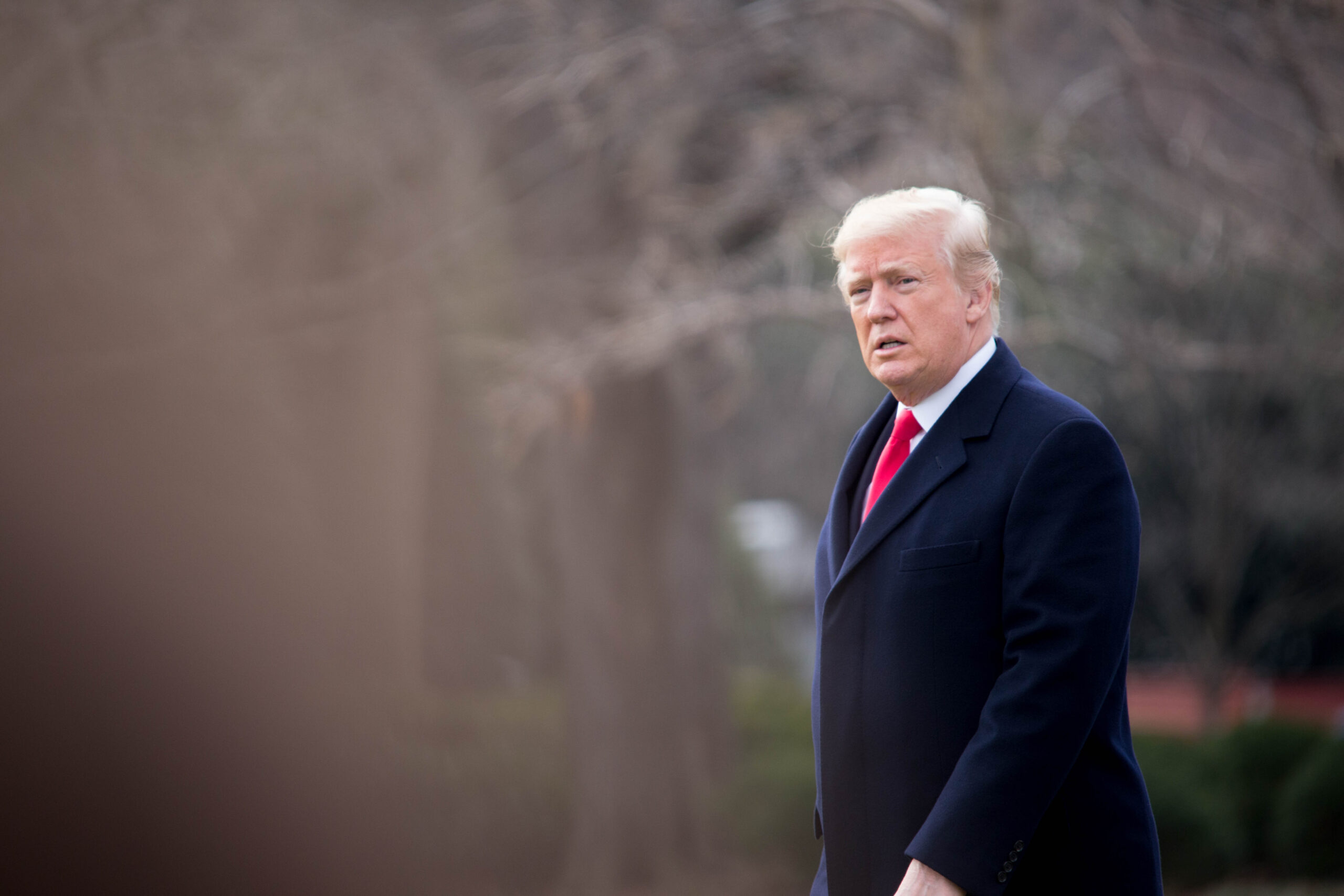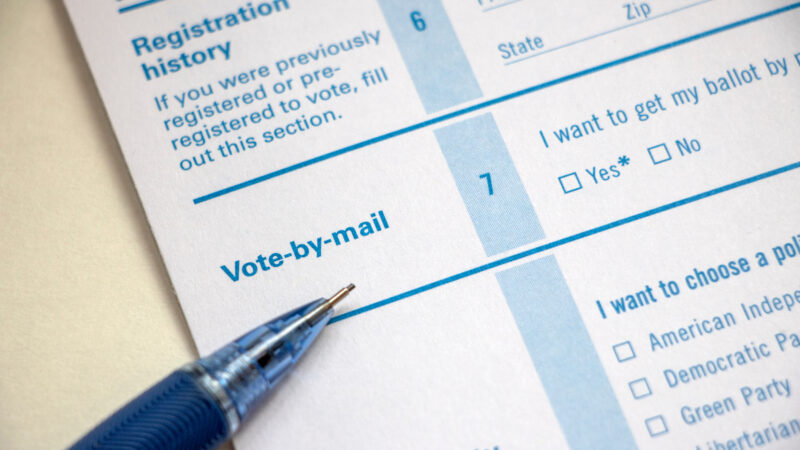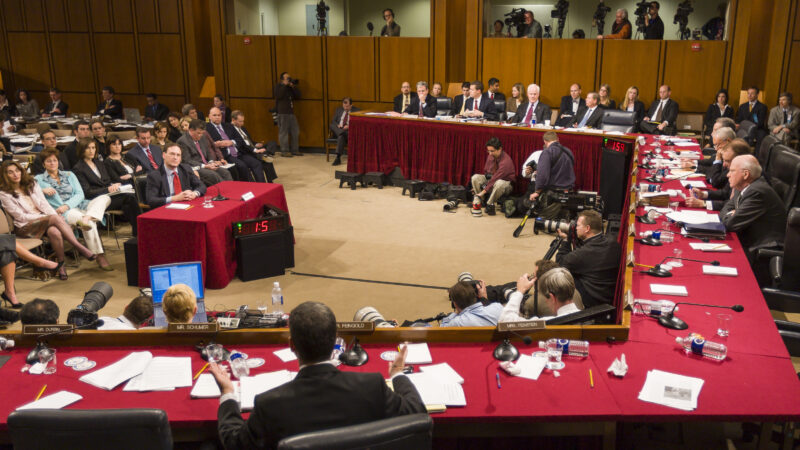Kristy Parker is Special Counsel at Protect Democracy. She leads litigation to secure accountability for abuses of executive power and interference with government functions, and leads advocacy to reform the Department of Justice and protect its independence from politicization.
How to weigh the federal national security and obstruction charges against Trump
- June 9, 2023
Is this politicized justice or a step towards appropriate accountability?

A federal grand jury in the Southern District of Florida has indicted Donald Trump on charges including willful retention of sensitive national defense information in violation of the Espionage Act, conspiracy to obstruct justice, and making false statements to federal officials. This makes him the first former president to be charged with federal crimes. While such a prosecution unquestionably breaks new ground — especially given Trump’s status as both a former president and also President Biden’s most likely opponent in 2024 — our criminal justice system rests on the principle that no one is above the law. Many high-ranking political actors have been charged with crimes in this country and democracies around the world. So we should expect the Justice Department to charge a former president with crimes when warranted by the facts and the law.
Indeed, it would be inconsistent with the rule of law and the Justice Department’s own mission and policies for it to decline to prosecute someone because of their political status.
Of course, we should also expect that Trump — who enjoys the same constitutional presumption of innocence as anyone else — will deny the charges and defend himself against them, and that our legal institutions and a jury of our fellow Americans will have the last word. That said, it is apparent that Trump’s defense strategy will be to portray the investigation and prosecution as politically motivated and to attack the integrity of the justice system and the judges, juries, and lawyers involved.
So how can the public make sense of this watershed moment in the history of our democracy? And in light of the claims of “weaponization” and “witch hunts”, how can we assess whether Trump’s indictment is appropriate and necessary accountability or a dangerous abuse of law enforcement powers?
Guide: How to tell whether a prosecution furthers the rule of law Guide: How to tell whether a prosecution furthers the rule of law
Protect Democracy recently published a guide that poses key questions to help with that task. Trump’s indictment has created a high-stakes moment for our democracy and answering those key questions can help put what’s at stake in perspective.
Q1: Is there evidence of political interference with the Justice Department?First: Is there evidence suggesting political interference with the Justice Department’s investigation?
In a democracy, it’s critical that law enforcement institutions function independently of partisan politics, precisely to avoid transforming the government’s vast law enforcement powers into a weapon that the president can use to retaliate against perceived enemies. Politicized law enforcement is, in fact, one of the hallmarks of authoritarian government. To that end, presidents from both parties have accepted the idea that the White House should not interfere in specific law enforcement matters and that there should be specific policies in place to prevent that from happening. Likewise, the Constitution, the ethical standards that govern prosecutors, and the Justice Department’s Principles of Federal Prosecution together prohibit basing prosecutorial decisions on the political status of a potential defendant. Justice Department policies also strictly regulate public commentary on pending investigations.
Asking whether these policies are in place and being followed is one way of discerning whether a Justice Department investigation is proceeding independently.
Notably in that regard, Attorney General Garland has prioritized insulating the Justice Department from political interference. His strategic plan pledges adherence to policies that strictly regulate communications between the DOJ and White House and asserts that the “Department must be shielded from all forms of improper influence in its investigations and prosecutions.” And in the public sphere, Garland’s statements about investigations involving Trump have been minimal and none have opined on Trump’s guilt.
Read: How to tell whether a government investigation or prosecution is “weaponized” Read: How to tell whether a government investigation or prosecution is “weaponized”
Following Trump’s announcement of his 2024 presidential campaign, Garland appointed a Special Counsel to handle the ongoing criminal investigations involving Trump and later also appointed a different Special Counsel to investigate possible mishandling of classified records by President Biden. In both cases, he cited concern for the Department’s independence from partisan politics as the basis for doing so. Garland also has retained in office a Trump-appointed United States Attorney to oversee a criminal investigation of Hunter Biden. And he allowed an investigation by Special Counsel John Durham, who was appointed by former Attorney General Bill Barr, to conclude, as Durham acknowledged, “without interference,” in spite of the highly politicized nature of that investigation and its conclusions.
By contrast, during Trump’s presidency, Trump and Barr routinely publicly called for and made guilt-presuming statements about investigations of Trump’s adversaries, and Trump has made mobilizing the Justice Department to retaliate against those now investigating him a campaign promise.
Q2: Is there evidence to support Trump’s indictment?Second: Is there evidence to support Trump’s indictment and is he being treated the same as others accused of similar crimes?
The indictment accuses Trump of violating the Espionage Act by knowingly retaining highly sensitive documents and other materials and refusing to give them back when asked to do so by government officials. It also accuses him of obstructing justice by concealing records and lying about doing so, and conspiring – or agreeing – with at least one other person to conceal or withhold information from the government. For his part, Trump has not denied taking and keeping classified and other sensitive records, but has variously — and falsely — claimed that the records were “his” or that he declassified them before their removal from the White House. Importantly, the Espionage Act charges do not apply solely to “classified” information, but rather to materials related to national defense. And the records in Trump’s possession reportedly included some that are classified at the highest level of sensitivity and that could thus impact U.S. national security.
A bipartisan array of legal experts have argued that charges are warranted based on the known facts and that Trump’s actions pose a serious threat to national security. Most notably, former Trump lawyer Ty Cobb called the obstruction case against Trump “tight,” and former Attorney General Barr opined that the government’s case “is potentially very serious”: “[Trump] had no claim to those documents, especially the classified documents. They belong to the government. And so I think he was jerking the government around.”
While Trump is entitled to try to convince a jury that he did nothing wrong, the Justice Department routinely prosecutes cases of this nature, especially those that also involve obstruction of justice. Indeed, if any other person engaged in similar conduct, it would be highly unusual for that person to escape prosecution.
And while some have suggested the Justice Department must explain why a former president should be prosecuted for such an offense during the course of a campaign in light of the political implications, this is directly at odds with the Department’s role, which is to apply the facts and the law and not to consider the subject’s political status or anything else about the politics surrounding the case. The Department’s mandate to avoid considering political ramifications is laid out in its Justice Manual, has been reiterated repeatedly by Attorney General Garland, and has been explained by more than a thousand Department of Justice Alumni.
Read: More than 1,000 DOJ Alumni Explain Ongoing Investigations of Trump Should Not Be Deterred by His Presidential Candidacy Read: More than 1,000 DOJ Alumni Explain Ongoing Investigations of Trump Should Not Be Deterred by His Presidential Candidacy
Third: Have courts and other external validators upheld the Justice Department’s actions?
Judges and grand juries have had multiple opportunities to scrutinize the charges against Trump, and have to date concluded that the government has met the standards for executing a search warrant at his property, compelling testimony from his attorneys, and returning an indictment against him.
In August 2022, the Justice Department obtained a warrant to search for classified records at Mar-a-Lago, Trump’s private golf club and residence. This means that a federal magistrate judge concluded that there was “probable cause” to believe that the government would find evidence of one or more crimes as a result of the search. After Trump complained on social media that the “unannounced raid on my home” was “prosecutorial misconduct” and “political persecution,” Attorney General Garland made one of his few public statements on the case, explaining that the Justice Department sought the warrant only after less intrusive means of obtaining the documents had failed. Trump thereafter filed a collateral lawsuit challenging the search and the manner it was conducted, but a panel of the Eleventh Circuit Court of Appeals — a court dominated by conservative judges — upheld the validity of the search. In doing so, the court noted that “[t]o create a special exception” in the law governing search warrants for a former president “would defy our Nation’s foundational principle that our law applies ‘to all, without regard to numbers, wealth, or rank.’”
As the investigation progressed, and after Special Counsel Smith assumed responsibility for it, the Justice Department subpoenaed information from several of Trump’s attorneys. Judges on both the District Court for the District of Columbia and the D.C. Circuit Court of Appeals rejected Trump’s challenges to obtaining testimony and documents from one of those attorneys, upholding the government’s claim that the attorney possessed evidence of a crime and that the attorney-client privilege thus did not apply.
And finally, yesterday, a grand jury comprising at least 16 citizens of South Florida, the jurisdiction where Trump resides, returned an indictment, which means a majority of them found probable cause to believe that Trump had committed the crimes charged.
Based on what we currently know, the answers to these key questions support the conclusion that an independent Justice Department is properly seeking to hold Trump accountable for actions that appear to violate laws protecting our national security and preventing the obstruction of our legal system.
Of course, this doesn’t necessarily mean that Trump will be found guilty and convicted of crimes; there is another stage in the process during which the government must prove its case to a jury beyond a reasonable doubt. And it doesn’t mean that we shouldn’t train a watchful eye on the Justice Department’s continued adherence to the laws, rules, and norms designed to keep politics out of Trump’s prosecution. But it does mean that bringing Trump before a judge and jury is the right way to uphold the fundamental democratic principle that no one is above the law.
As Trump responds to his indictment in much the same way he responded to losing a free and fair election — by claiming that the criminal justice system is rigged and that the American people who perform its functions are acting in bad faith — it will be critical for the public to understand the indictment and Trump’s response in the proper context. Doing so can help us appreciate what’s at stake for our democracy as the process unfolds.
Related Content
Join Us.
Building a stronger, more resilient democracy is possible, but we can’t do it alone. Become part of the fight today.
Donate
Sign Up for Updates Sign Up for Updates
Explore Careers Explore Careers
How to Protect Democracy How to Protect Democracy




